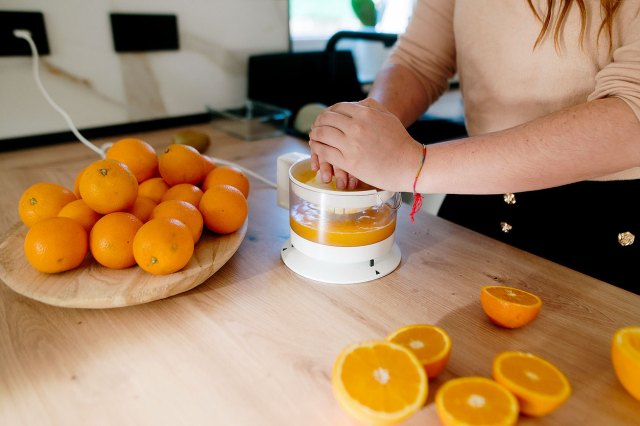Catching a winter cold happens to the best of us — especially when we’re cooped up inside with germs lingering in the air. Those telltale sniffles might have you running to the store for some vitamins and chicken soup, but not so fast. Some cold “remedies” aren’t all they’re cracked up to be. The folklore surrounding the common cold has been around for centuries, and while some methods are rooted in science, others are less so. We’ve debunked some of the most common cold myths to prepare you.

Myth: Being in Cold Weather Causes a Cold
Colds are caused by viruses that inflame the nose and throat membranes. Snowflakes and wintry air do not contain viruses. You also can’t catch pneumonia — another illness caused by bacteria, viruses, or fungi — from being outside in the cold. So, while catching a cold from a snowball fight is impossible, the cold air can make you feel worse if you’re already sick. The cold weather also tends to drive everyone indoors, where you can catch a cold from spreading viruses through person-to-person contact. For this reason, cold weather is associated with causing colds, though there is no merit to this.

Myth: Vitamins and Supplements Can Prevent a Cold
There is no definitive evidence that vitamins — including vitamin C — can stave off a cold. Vitamin C can, however, slightly shorten the amount of time you’re ill if it’s built up in your system before you get sick. But starting vitamin C once you already have the sniffles or a sore throat has no effect.
Zinc is another popular choice, but it has mixed results in lab testing for its effectiveness in preventing colds. The supplement might help shorten or reduce the severity of colds in some and have no effect on others. Zinc only helps if taken within 24 hours of the onset of a cold. Again, it won’t prevent you from catching one, but it can reduce the longevity of a cold for some people. Zinc can also have some nasty side effects, including upset stomach and issues with taste or smell, so adults should take note of the recommended dosage on the bottle and consult a doctor if they’re having side effects.

Myth: Starve a Fever, Feed a Cold
The common cold can cause a low-grade fever. And sometimes, what you think is just a cold can develop into something more serious, like the flu. Regardless of your illness, never stop hydrating or trying to eat. Your body needs fuel to get better, and depleting it of any nutrients will prolong your recovery and worsen your symptoms. This adage of “starving a fever” dates back to a dictionary written in 1574 by John Withals, who claimed that “fasting is a great remedy of fever” because depriving the body of warm food might cool it down. It has since been disproven, and modern doctors recommend eating a nutritious diet to help fight illness better.
Reader Favorites

Myth: Certain Foods Can Worsen — or Cure — a Cold
Finally, some good news for cold sufferers: Eat whatever you’d like. Lists abound detailing the “best foods for a cold,” but there is no concrete evidence that certain foods can worsen — or, for that matter, cure — a viral infection. Staying well hydrated and fed during a cold is important so your body has calories to burn while recovering. If something tastes good while you’re sick, eat it.
In general, eating healthy foods and avoiding too much sugar is the best call, but sometimes, the only thing to soothe your painful sore throat might be some ice cream. Fortunately, avoiding dairy is another common cold myth. These foods do not cause more mucus, and the probiotics in some dairy products, such as yogurt, have gut health benefits that could help you feel better sooner. Another popular comfort food, chicken soup, won’t cure your cold, but it can ease symptoms. It works as a nasal decongestant due to the steam it emits, which can temporarily reduce inflammation. The same goes for tea and other hot liquids — any of these will give you short-term relief from congestion.
Featured Image Credit: Martinns/ iStock
More From Our Network
Better Report is part of Inbox Studio, which publishes content that uplifts, informs, and inspires.














